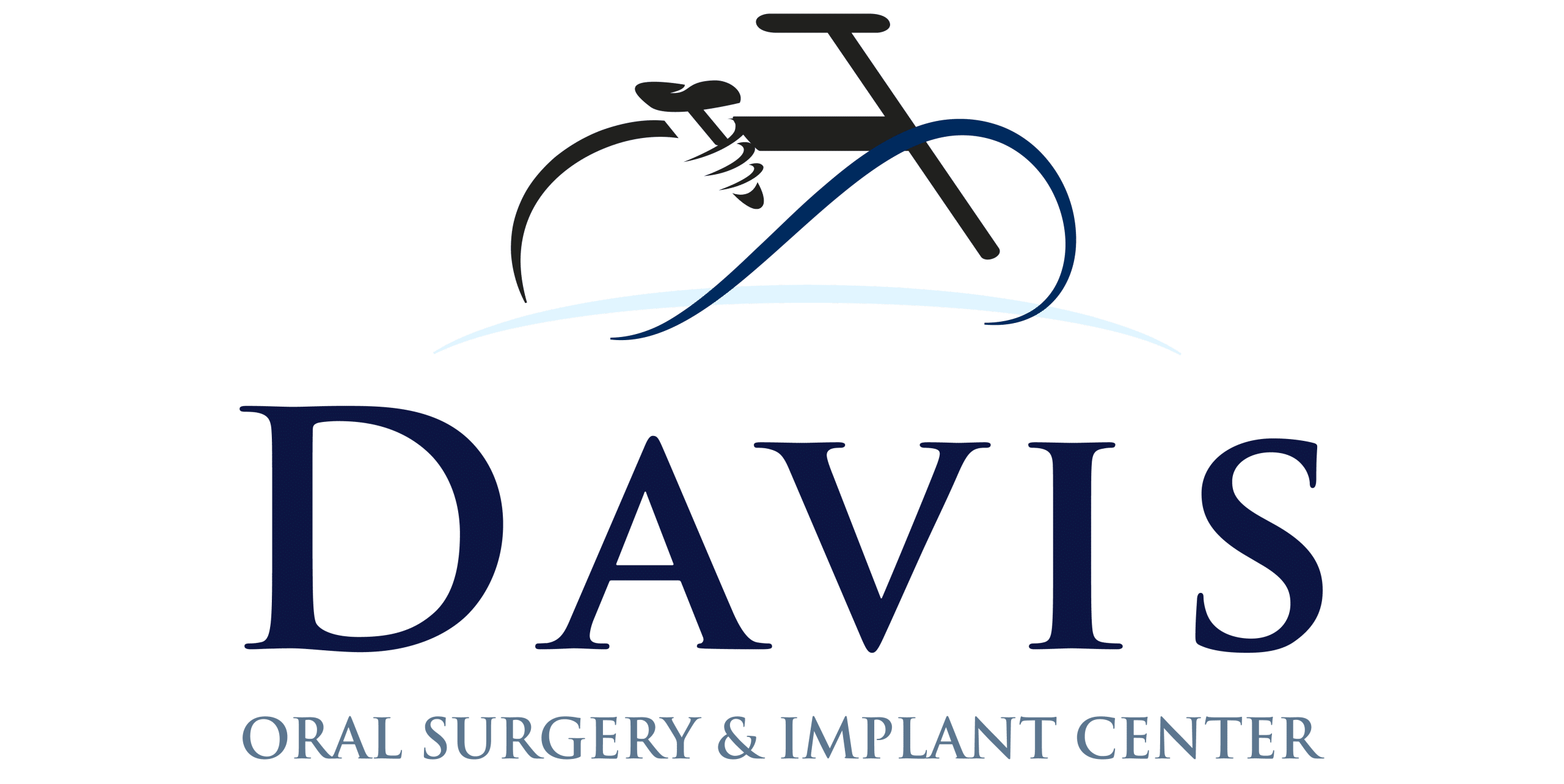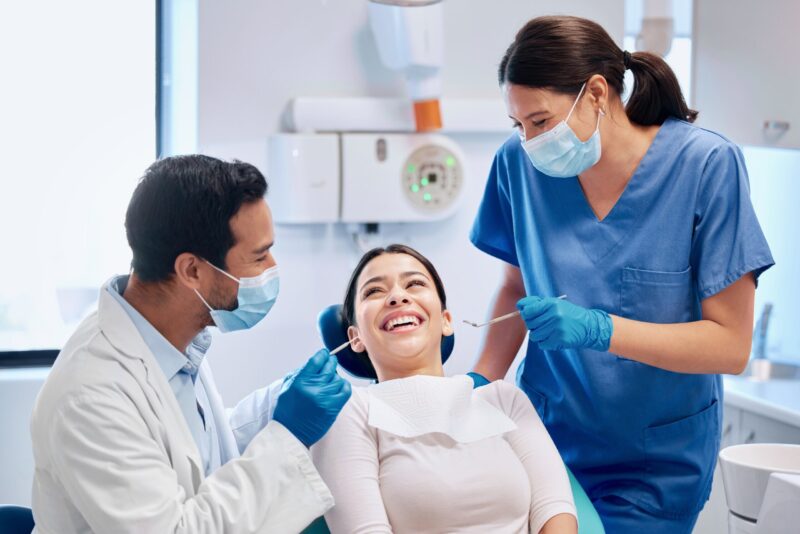We provide dentoalveolar surgery at Davis Oral Surgery and Implant Center. Whether preparing for a tooth extraction, uncovering an impacted tooth, or planning for future restoration, here’s what you should know about dentoalveolar surgery.
What Is Dentoalveolar Surgery?
Dentoalveolar surgery refers to procedures involving the teeth and the alveolar bone—the part of the jaw that holds teeth in place. These procedures are among the most common oral surgeries and play a key role in dental health and function.
Typical dentoalveolar procedures include:
- Tooth extractions, including wisdom teeth
- Surgical exposure of impacted teeth for orthodontic treatment
- Apicoectomy, or root-end surgery
- Bone smoothing or reshaping in preparation for dentures
- Removal of cysts or infections within the jaw
Depending on the complexity and patient preference, these treatments are typically performed under local anesthesia, IV sedation, or general anesthesia.
Who Might Need Dentoalveolar Surgery?
Many patients seek our guidance in dentoalveolar surgery. Davis patients often visit us for this procedure after a referral from their general dentist or orthodontist. Some common reasons include:
- Impacted wisdom teeth causing pain or infection
- Orthodontic treatment, such as exposing a canine that hasn’t erupted naturally
- Severe decay or damage that makes a tooth non-restorable
- Chronic dental infections requiring removal of the tooth root
- Bone reshaping to improve the fit of dentures or implants
If you’ve been experiencing dental pain, swelling, or delays in orthodontic progress, this surgery might be part of your treatment plan.
What to Expect from Dentoalveolar Surgery
Your care begins with a thorough consultation at Davis Oral Surgery and Implant Center. Dr. Amir Nojoumi or Dr. Pouya Namiranian will review your medical and dental history, evaluate your imaging, and thoroughly walk you through the procedure.
Here’s a general idea of what the process looks like:
- Consultation & Imaging: If needed, we’ll assess the area with X-rays or a 3D CBCT scan.
- Anesthesia Options: We offer several sedation options to ensure you’re comfortable.
- The Procedure: Surgery can take anywhere from 30 minutes to a couple of hours, depending on your case.
- Recovery: Most patients return to normal activity within a few days. We’ll give you customized post-operative instructions to support healing.
We also provide follow-up care and are always available by phone if you have questions after your visit.
Why Choose Dentoalveolar Surgery?
Choosing a local oral surgeon means more than just convenience. We combine specialized training with a patient-first approach at Davis Oral Surgery and Implant Center. Our office serves the greater Davis area, including but not limited to all of Yolo County and surrounding cities and communities. UC Davis students, families, and professionals visit us from Sacramento, Fairfield, Vacaville, Woodland, Winters, and beyond!
Dr. Nojoumi is a board-certified oral and maxillofacial surgeon with extensive experience in routine and complex dentoalveolar procedures. Our team is committed to clear communication, safety, and patient comfort at every step.
Common Questions About Dentoalveolar Surgery
Is dentoalveolar surgery painful?
Most patients report minimal discomfort. We use effective sedation and anesthesia, and post-op soreness can usually be managed with over-the-counter medication.
How long is recovery?
You can expect a few days of downtime. Full healing may take a few weeks, but you’ll likely feel much better within the first 48–72 hours.
Do I need a referral?
While many patients are referred by their general dentist, you can contact us directly to schedule a consultation.
Schedule Your Consultation Today
If you need dentoalveolar surgery or want to understand your options, our team is here to help. We’ll guide you through the process with clarity and care.
Contact us today to schedule your consultation with Dr. Amir Nojoumi and Dr. Pouya Namiranian. We look forward to supporting your dental health every step of the way.

